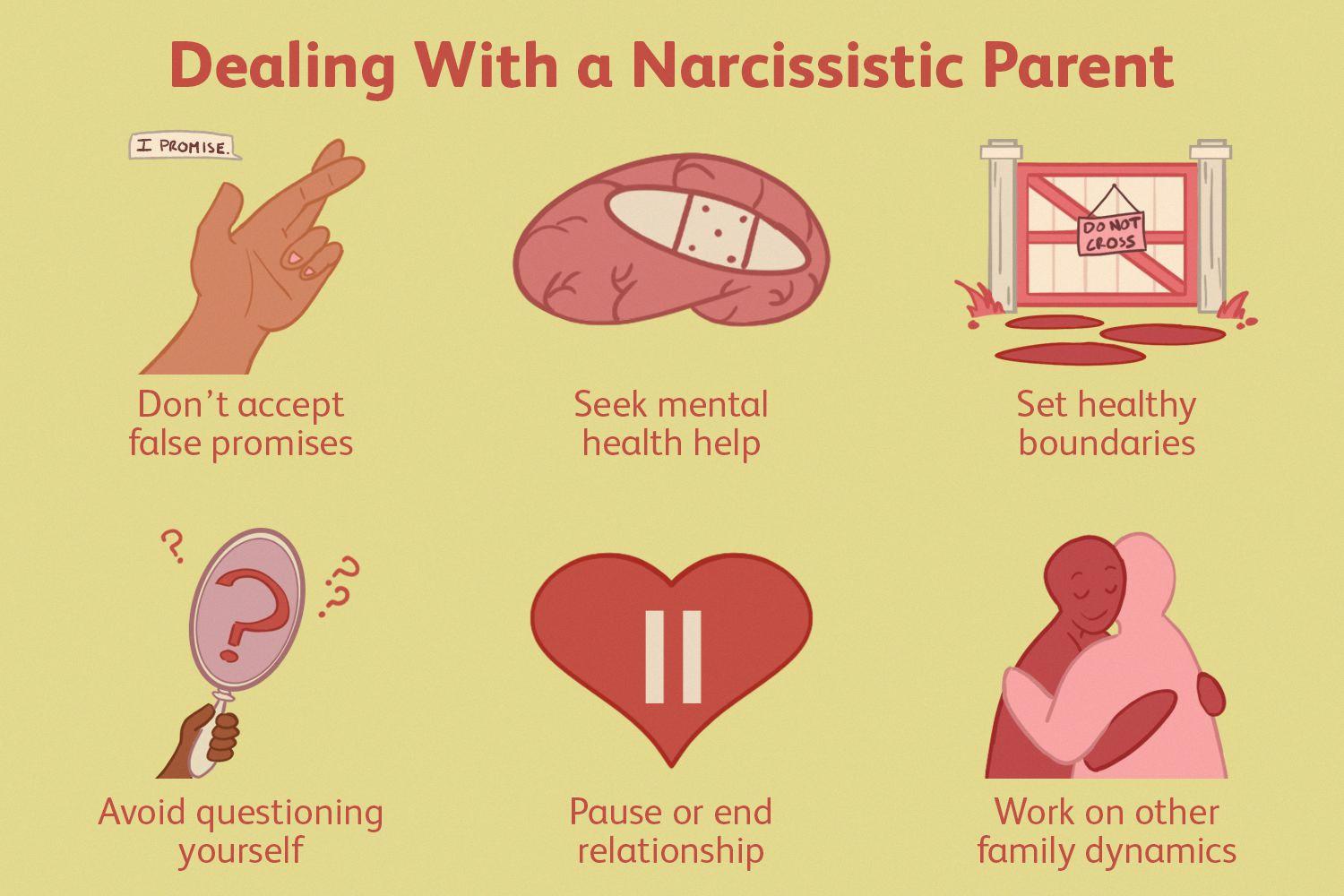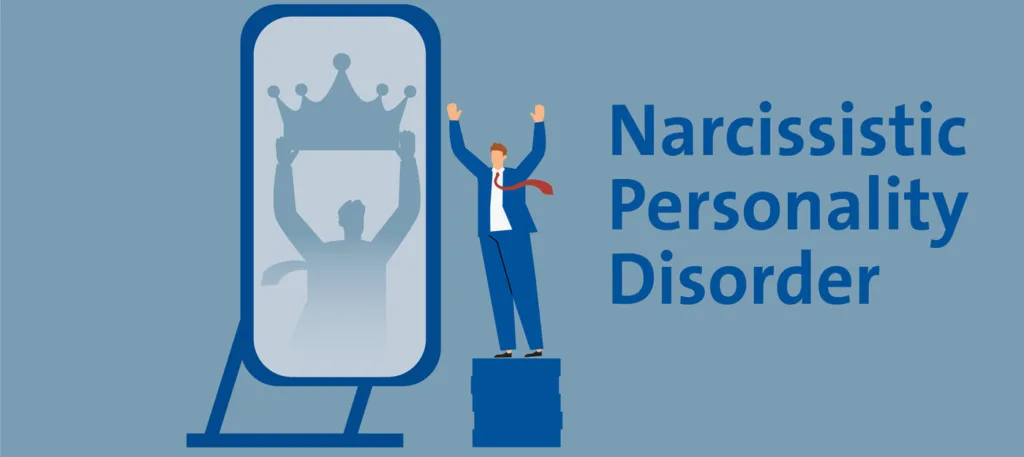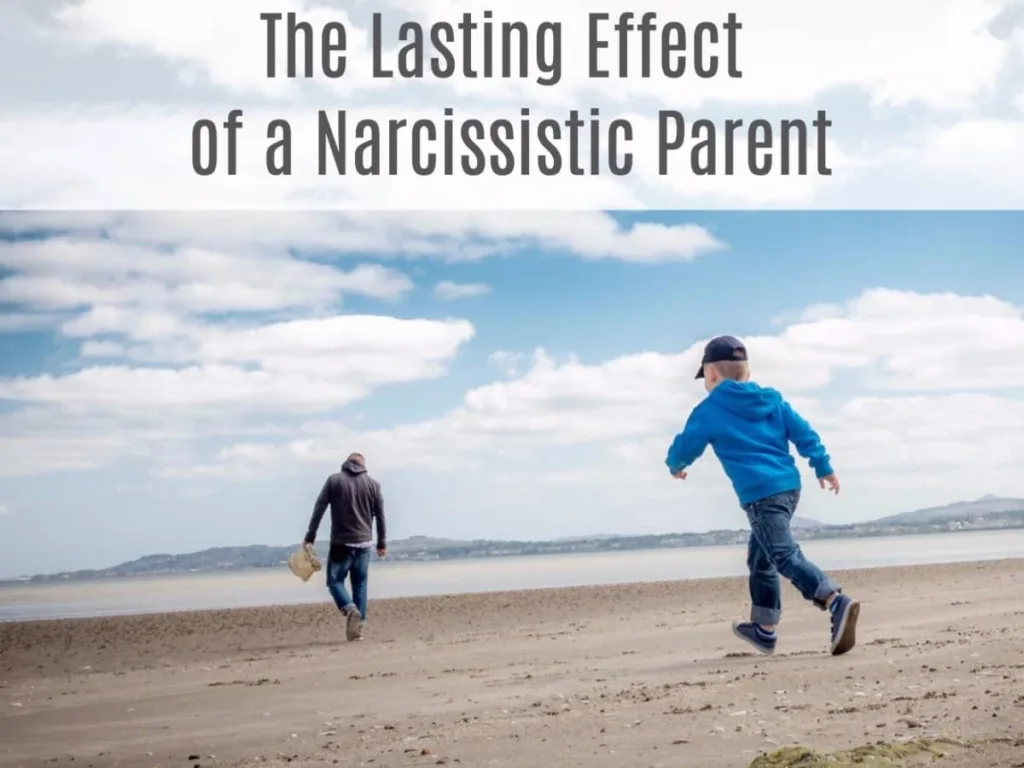Daughters of narcissistic fathers ofen experience a range of negative emotions, such as low self-worth, anxiety, and depression. Growing up with a narcissistic parent can leave a lasting impact on a daughter’s life, both emotionally and psychologically. Narcissistic fathers tend to be controlling, manipulative, and emotionally abusive. They may also be physically abusive or neglectful.
The effects of a narcissistic father can be devastating for daughters. Daughters of narcissistic fathers often struggle with feelings of inadequacy and insecurity due to the lack of validation from their father. They may become “orbiters”—focused on meeting the needs of their father rather than their own needs and desires. This can lead to difficulty forming healthy relationships in adulthood as they have difficulty trusting others and feeling worthy of love.
The need for validation from their father is often so strong that daughters may develop traits similar to his in order to gain approval or recognition. As a result, daughters may become narcissists themselves—using manipulation and control tactics similar to those used by their father in order to gain the validation they crave.
It is important for daughters of narcissistic fathers to seek help in dealing with the effects of growing up in an environment where they did not receive adequate love or support from their father. Therapy can provide daughters with an outlet for expressing their feelings as well as tools for recognizing unhealthy patterns and changing them into healthier ones so that they can move forward with confidence and security in life.
The Impact of a Narcissistic Father on His Daughter
A narcissistic father typically expects their daughter to meet their unrealistic standards and desires. They are likely to be overly critical and controlling of their daughter’s behavior, often making them feel inadequate or worthless. They may also manipulate her emotions by invalidating her feelings, trying to make her feel guilty or ashamed for expressing herself, or gaslighting her. Narcissistic fathers may also neglect their daughter’s nees and interests in favor of their own. The end result is that a daughter with a narcissistic father may struggle with feelings of sadness, low self-esteem, anxiety, and depression as well as physical and emotional abuse.

The Impact of Narcissistic Fathers on Their Daughters’ Development of Narcissism
It is possible for daughters of narcissistic fathers to become narcissists, though thre is no definitive answer as to why this may occur. It is thought that narcissistic personality disorder is caused by a combination of environmental and genetic factors, so it is likely that a daughter of a narcissistic father may have inherited some of his traits. However, it is also thought that the dynamic between a child and their parent plays a role in the development of narcissistic traits.
In the case of daughters of narcissistic fathers, they may have grown up in an environment where their needs were secondary to those of their father. This can lead to feelings of worthlessness and insecurity, which can be difficult to overcome without proper coping strategies or therapeutic intervention. As such, these feelings can lead to the development of narcissistic traits as the daughter tries to overcompensate for her lack of self-esteem and self-worth.
Ultimately, whether or not a daughter of a narcissistic father will become a narcissist herself depends on both genetic factors and the upbringing she received from her father. If she was able to develop healthy coping strategies and build strong self-esteem, then it is unlikely that she will become a narcissist herself—but if not, then it is possible that she may develop some narcissistic tendencies over time.
The Effects of Being Raised by a Narcissistic Father
Being raised by a narcissistic father can have long-term effects on a child’s emotional and mental health. As narcissistic fathers are often emotionally unavailable, neglectful, and abusive, it can lead to a child feeling unloved and unworthy. This can result in the child developing low self-esteem, struggling with anxiety and depression, and havig difficulty forming healthy relationships with others. Furthermore, since narcissists tend to lack empathy for the feelings of others, their children may grow up struggling to understand and manage their own emotions as well as those of other people. This can lead to difficulties in forming meaningful relationships with friends and family members throughout life.
Signs of a Narcissistic Father
Signs of a narcissistic father include: an inflated sense of self-importance, a need for excessive admiration, feeling entitled to special treatment, a lack of empathy and concern for others, extreme envy and jealousy, arrogance and grandiosity, manipulation and control, an inability to handle criticism or setbacks, an obsession with success and power. They may also display impulsivity, hypersensitivity to criticism or rejection, a sense of superiority to others, and an expectation that their needs should be met without question. In addition, they may have difficulty forming meaningful relationships due to their inability to empathize with others.
The Impact of a Narcissistic Father on Daughters
Daughters of narcissistic fathers often experience a range of negative emotions and psychological effects. These may include low self-esteem, lack of confidence, feelings of inadequacy or unworthiness, difficulty forming and maintaining relationships, and difficulty trusting others. These effects can be further compounded by the constant criticism that thse daughters receive from their narcissistic fathers. This can lead to feelings of anxiety and insecurity as they seek desperately to avoid letting him down. Furthermore, this constant criticism may also lead to eating disorders, depression, and other forms of self-destructive behavior. It is important that these daughters receive support and understanding in order to help them heal from the damaging effects of growing up with a narcissistic father.

Source: verywellhealth.com
The Impact of Narcissism on Daughters
Daughters of narcissists often struggle to develop a strong sense of self. They often become enmeshed with their parent, losing the ability to draw healthy boundaries and to recognise and nurture healthy relationships. This can lead to difficulties in forming intimate relationships later in life, as well as a lack of self-confidence and an inability to trust others.
These daughters may also have trouble regulating their emotions or expressing their needs, leading to feelings of anger, guilt or depression. They may also find themseves struggling with perfectionism and trying to please everyone around them or conversely, feeling completely worthless and undeserving of love or attention.
In addition, they may experience difficulty setting goals and achieving them due to a lack of direction or support. They may also find it hard to advocate for themselves or voice their opinions due to feelings of not being worthy or capable enough. Finally, these daughters may struggle with codependency issues which can result in unhealthy patterns in romantic relationships or difficulty maintaining friendships.
Raising Children as a Narcissist
Narcissists typically raise children who have difficulty setting healthy boundaries, have a strong need for external validation, and may have a heightened sense of entitlement. They learn to rely heavily on their parents for support, as narcissists often struggle to show empathy or offer unconditional love. In this environment, children of narcissists may become either ‘invisible’ or overly dramatic in order to gain the attention they desperately seek. Sons of narcissistic mothers are particularly at risk of developing narcissistic traits themselves due to the mother’s need to build her son’s ego. As a result, these sons may grow up with an inflated sense of self-importance and be more prone to manipulation and exploitation. On the other hand, daughters of narcissistic mothers may grow up feeling like they can nver measure up and become highly self-critical as a result. Ultimately, children of narcissists are more likely to experience feelings of low self-worth and take on unhealthy habits in an attempt to get the validation they crave from their narcissistic parent/s.
Identifying a Narcissistic Child
Based on the research, it appears that first-born children are most likely to be narcissistic. This is because the study found that all of the narcissistic personality traits (grandiose sense of self-importance, a preoccupation with fantasies of success, power, beauty, and ideal love, an exaggerated need for admiration and attention from others, a belief in their own uniqueness and superiority to others, a sense of entitlement to special treatment or privileges, a tendency to exploit others to achieve their own goals and desires, and a lack of empathy for other people) were significantly more prevalent among first-born children (p
The Onset of Narcissism: Age Range
Narcissistic personality disorder (NPD) is most common among adults, typically beginning in the late teens or early adulthood. It is important to note that some children may show traits of narcissism, but this is often very typical for teir age and does not necessarily mean that they will go on to develop NPD. In fact, it is much more rare for youth to suffer from this disorder than adults. If you are concerned about your child exhibiting signs or symptoms of NPD, it is important to talk to a mental health professional who can assess your child’s behavior and provide the appropriate treatment.

The Effects of Childhood Trauma on the Development of Narcissism
Childhood trauma that can lead to the development of narcissism includes emotional or physical abuse, neglect, rejection, or excessive criticism from parents. These experiences case the child to develop a sense of shame and insecurity, which can lead to an inflated sense of self-importance and a need for admiration in order to feel validated. Other types of childhood trauma that may contribute to narcissistic traits include parental abandonment, absent or inconsistent parenting, overly permissive parenting, or a lack of parental boundaries. Traumatic experiences such as the death of a parent or sibling may also increase the likelihood of developing narcissistic characteristics. All of these traumatic experiences can lead to an inability to form healthy relationships with others and difficulty regulating emotions. This difficulty in forming interpersonal connections and managing emotions can manifest in symptoms associated with narcissism.
The Effects of Having a Narcissistic Parent on Mental Health
Yes, it is possible to develop PTSD from a narcissistic parent. Trauma experienced in childhood can result in the development of PTSD or complex post-traumatic stress disorder (cPTSD). Overt abuse and neglect, emotional neglect, and gaslighting are all forms of abuse that can lead to psychological trauma. Symptoms of PTSD may include flashbacks, nightmares, intrusive thoughts, difficulty sleeping or concentrating, hypervigilance, and avoidance of reminders of the traumatic event. It is important to note that not evryone who experiences traumatic events in childhood will develop PTSD; however, it is important to seek help from a mental health professional if you are struggling with the effects of trauma from a narcissistic parent.
Signs of Being Raised by a Narcissist
The signs someone was raised by a narcissist can include difficulty with their own emotions, such as anxiety, depression, and low self-esteem. They may also have issues with addiction as a coping mechanism. Other signs include feelings of worthlessness and shame, difficulty trusting others, and an inability to express emotion. Additionally, they may have difficulty in forming positive relationships with others and may be overly passive or aggressive. They may also be prone to making negative comparisons about themselves with others.
The Impact of Narcissistic Fathers on Their Children
Narcissistic fathers often use language that is designed to manipulate and control. They may criticize their children for not meeting their standards or expectations, belittle their accomplishments, and make them feel inferior. They will also often use gaslighting techniques, such as denying that something happened or shifting the blame onto the child. Narcissistic fathers may also be overly critical and dictatorial, expecting their children to obey without question. Additionally, they may invalidate their children’s feelings or experiences by minimizing them or claiming that they are exaggerated or wrong.

The Impact of Narcissism on Children
Narcissistic parents often try to control their children by belittling, shaming, and manipulating them. They may also be overly critical and demanding of their child’s performance or behavior. This can lead to feelings of low self-esteem and worthlessness in the child, as they are constantly being compared to unrealistic expectations set by the parent.
Narcissistic parents may also attempt to shape their child’s beliefs and values according to their own world view. Narcissistic parents can also be possessive and overly involved in the child’s life, not allowing them any space or autonomy. They may not allow the child to explore other activities or interests outside of those sanctioned by the parent, or make decisions that would differ from what the parent believes is best for them.
Finally, narcissistic parents may use guilt-tripping tactics when it comes to dealing with their children, where they make a child feel guilty for not doing thins according to their wishes. This type of manipulation can become emotionally damaging for a child over time, as it reinforces an unhealthy sense of obligation towards pleasing the parent at all costs.
The Narcissist’s Reaction When They Cannot Control You
When a narcissist can’t control you, they will typically react with anger and may even attempt to threaten you. They may try to manipulate your emotions by uing positive or negative moments to get what they want. They may also use gaslighting techniques or other forms of psychological manipulation in order to weaken and destabilize you. This can be a very unpleasant and intimidating experience, as the narcissist may become increasingly more aggressive as they feel their power slipping away. It is important to remember that no one should have to put up with any kind of abuse and if someone is feeling threatened or unsafe, it is important to reach out for help.
Conclusion
Daughters of narcissistic fathers have the potential to suffer from a range of psychological issues, such as low self-worth, anxiety, and depression. They can also struggle with unhealthy relationships due to their need for excessive praise and validation. It is important for parents to be aware of the signs of narcissistic personality disorder in order to ensure their daughters do not suffer from its effects. With understanding, support, and therapy, daughters of narcissistic fathers can work towards having healthy relationships and becoming confident in who they are.
